- Home
- catt dahman
Terms Mystique: Z Is For Zombie 9
Terms Mystique: Z Is For Zombie 9 Read online
Terms Mystique: Z is For Zombie Book 9
Catt Dahman
Copyright.
catt dahman
©2013, catt dahman
[email protected]
ALL RIGHTS RESERVED. This book contains material protected under International and Federal Copyright Laws and Treaties. Any unauthorized reprint or use of this material is prohibited. No part of this book, including the cover and photos, may be reproduced or transmitted in any form or by any means, electronic or mechanical, including photocopying, recording, or by any information storage and retrieval system without express written permission from the author / publisher. All rights reserved.
The characters, places, and events depicted are fictional and do not represent anyone living or dead. This is a work of fiction.
Nic: I wouldn’t have written any of this without your support. Thanks for the endless help with weapons and situations my characters needed to get out of. You have no idea, but one day, you will be Kimball.
Bobby:
I miss you still.
Z is for Zombie Order:
George’s Terms
Event Horizon
Shadow of Doubt
Devil’s Details
Rage
What Lies Beneath
Avenging Angel
End of the Road
Term Mystique
To everyone who has read this series and ridden along on this journey:
I hope you had a few laughs along the way, I hope a few scenes scared you, and I hope some of the events made you feel squeamish. If you made it this far, then you know the zombies were used as the vehicle, but this series was about far more; it was about what makes a person human and the rights of people to leave this world on their own terms.
But we are almost finished with the drive and have just about arrived. I’m ready to turn off the ignition, but we can sit here a few minutes. It’s hard to finish a book after 8 full novels, but as George knew, there could only be one way for this to end; I hope it satisfies you. Is it really over? You should know, and if you don’t, ask Len, he knows how this works now.
Dedicated to my readers who rode with me through all 8 books and trusted me to do the driving: This one is YOURS!
1
Z year 15
Long ago in times before man had learned to fly to the moon or designed plastic or sent e-mail, there were stories told around campfires about fire-breathing dragons, colorful outlaws, and mischievous children who crept about witches’ cottages to snip off parts of the sugar-cookie roofs and ate until they were stuffed full of treats. In those days, cowboys pitched bedrolls along the trails, shared some whiskey and tall tales, and kept their eyes out for hungry Mexicans and sneaky coyotes.
After the turn of another century, there were no longer tree-shaded, narrow trails but asphalt highways filled with cars and trucks, eighteen wheelers, and motorcycles. These were major arteries of travel between South Texas and North East Texas, dotted with vehicles, towns, and stores, modern and convenient.
At one time after man became civilized and industrious, people depended on these roads, and the tales of dragons and greedy little children were replaced with real stories of violent spree-murderers, terrorist attacks, mounting pollution, and falling economies. But those stories were mild versions of what was really out there, waiting to over-run the country because no matter how dark the bedtime story, the real monsters in the closet were far worse.
They would bite.
Because the world wasn’t going to hell fast enough for some people, Dr.
Henry Diamond, brilliant, egotistical, and over-all hard worker, made a special serum for the United States military that wouldn’t kill the masses. Instead, the serum infected millions with a hemorrhagic virus that caused its victims to bleed from every bodily orifice and suffer massive diarrhea and bouts of vomiting. But that was the easy part. After days of humiliation, the infected slipped into feverish comas.
Not enough horror involved in just that?
Those same people woke from comas to exist as puppets, controlled by prions in their brains with only their most basic instincts left; they occasionally mated (but not well, and their offspring, if any, were grey, malformed, slimy messes), and ate. That was all. Only, Henry Diamond, scientist extraordinaire, added his own twist to the infection he designed so that the recently awakened coma-victims craved human flesh: warm and alive.
As the infected, known as Reds, bit other people, those in turn, were infected. Exponentially, the epidemic spread, and the United States was the last country to fall.
Once a trail for western expansion and then a highway connecting the top of a state to the bottom, the roadway was like a ghost town, dusty, in disrepair, over grown with weeds, and for the most part, empty of people. The biggest living populations were murders of crow, packs of coyotes, and large roving packs of wild dogs, medium-and-large-sized animals that had long forgotten domestication.
On the sides were places packed with old, rusted cars and trucks that rested on rotten scraps of tires; they had been carefully shoved there years before into huge mountains of metal.
Stores were empty; either standing with wide-opened doors and broken windows, the paint peeled away and parking lots were full of broken slabs and weeds or piles of metal and rubble. In some places, old signs remained and reminded people of what the places had been used for.
In some places were rotten heaps of clothing and yellowed bones, but the blood of many battles was washed away. In one place, they stopped to look over a pond and stream that ran under a bridge.
“What happened do you think?” Lexie asked.
The others looked at each part of the scene, analyzing and thinking; this was a habit they had gotten from Len, who always surveyed situations until he had a reasonable explanation of what had happened. He claimed that was how he learned to guess what could or might happen in similar situations. They fell into the habit naturally.
Cory pointed out a horse carcass that had been stripped to the bone in most places and was lying on the bank. He showed them how one leg looked strange, and how maybe it had been worried and chewed by wild dogs since it also looked as if it had been broken. “Let’s say for some reason a group veered off and went down on the bank.”
“They were thirsty, and the pond looked good. It would have been better than nothing, and they could boil the water but….”
The rest nodded. The pond was full of zombies now, old, degraded bodies, but some were also more recently shot in the head and left in the water. No one would have considered that the water contained Zs or that anyone would have willingly filled the water with bodies.
Many were naked as they had been in the last few years, some wore tattered clothing, and only a few had shoes. At one time, each had been mangled and infected, so some were missing hands, arms, hunks from heads, and parts of opened stomachs.
They lay like cord wood, stacked where they had fallen and were rotting in the pond, making the water smell horrible; a thick rotting goo had formed.
“They came down the bank to get water, but they didn’t get far because there was no fire, so they could not boil the water. This had happened just about a week or so. The Zs came in a mass.”
“From?” Stevie asked, looking all around in case a mass was sneaking up on them right then.
Henry pointed, “Look, there; see that open spot in the trees? They came out of there and would’ve been about right there, between us and the pond.”
He was trying to decide why they had been in the woods to begin with. He thought there must be some big farm back down a road and that would have led them here by a trail. “We may wanna check the farm to see if anyone is t
here.”
“This is why Len always has us constructing the stories so we don’t miss any thing,” Cory chuckled. “Stevie? Lexie?”
“They thought there were just a few, and they really needed the water.
The horse was frightened and reared, maybe had thrown the rider, so
everyone panicked. There were some little ones; see the mashed stuffed
bear? They shouldn’t have been down there, but they…they…okay; they were
using the trail to cut through to the farm and save time.”
“And because they had run into those up here.” Lexie nodded her head to the half dozen Zs that were on the side of the road, shot in their heads.
Cory couldn’t help but recall another time when people had been at water running under a bridge, resulting in a busload of kids and adults drowning and being infected by the Zeds.
“They panicked, and if you look at these, you see they are people: no bites only shots to the head, and these have bites and shots.” He thought a few with guns might have accidentally shot the uninfected in the chaos, then had to put down some of their own after they were bitten.
“It was mass chaos then; everyone was shooting. This is the result.”
Bodies littered the sides of the pond and the stream. With the next big rain, the stream would flood, sweeping out the bodies from it and many from the pond, but the water would still be dangerous.
Henry suggested they ignore the trail and use the road to check the farm- house to see how it was faring. The group had to take care of a large mass of zombies that shambled around the farm; fences were down, animals ran free or were dead, and close to the main house and barns, both Zs and humans lay in the dirt to rot.
They found two people on the roof of the main house, surrounded by moaning, hungry Zs; they waved at the survivors with blood stained bandages. Many of the zombies that reached up towards the two on the roof were probably family or friends since they had fresh wounds and had not been turned long.
After the zombies were put down, the two from the roof--a man and woman, climbed down, trailing blood from missing fingers and ripped open arms, explaining that a horde had hit the farm and had seemed to be led by faster, smarter zombies who were far more cunning than the regular ones.
With an attack led at night, more than thirty were killed quickly, but four of them had managed to get to safety, where they stayed for a week, trying to figure out what they should do and waiting for the Zs to go on.
Some Zs had gone away, headed toward the trail, which explained the story to those who had wondered. They had gone that way and unfortunately had met up with some survivors who needed water. Bad timing. The gunshots at the ones on the road had surely drawn the ghouls.
The four had held out and then tried to run; two were eaten alive, screaming for a long time, while the other two climbed to the roof as their refuge was overrun.
They hated it, but Henry’s group waited until the two injured people were looking away and placed bullets in their heads; they were infected and had less than a few hours at most until they turned.
Feeling like looters, they still stripped the farmhouse of everything usable and stacked those supplies with their own.
“This story wasn’t so good,” Pak said.
“I know,” Stevie said. “Len says you have to put it together and get the big picture so you can learn. We have some supplies, but what did we learn?” She kicked at a rock on the ground, dejected by everything that had occurred. ”I learned this sucks.”
Henry patted her shoulder, “We learned that the Buzzes are causing trouble in the area and that we should be alert. Also, we learned again not to panic or go down to a riverbank. Much more, we learned that things could go from bad to worse very quickly.
We gave those people a story, and they will live in our memories.”
“Still sucks,” Lexie said.
Henry built a sign quickly and marked it, saying: ‘the water below is infected’. “That may save a life, never know.”
Along this route, points of interest (because they were unexpected) were a downed, burned out airliner that had crashed fifteen years before and (far from the bridge and down a river bed) a half-buried bus that once had been a cheerful yellow, but was now bleached and pitted. The former was often looked over and mused upon, but the latter was never seen.
The airplane was something that the younger people could only imagine flying in the air, unsure if the stories were real or fairy tales. The plane had crashed long before, killing everyone aboard and those on the ground in its path. Since then, zombies and humans both had died near the airplane since it seemed to draw both to look more closely at its wreckage.
Down in the riverbed, the school bus had flipped over many times in the initial wreck and then several times more in later floods so that the vehicle lay with the door closed shut from underneath.
Boxes and bags of supplies lay along the side (which was currently the floor) and were ripped open, dirty, and ruined. Cans of food lay under mud, toys sank into rotting vegetation, and twigs and sticks, leaves, and more than a few animal carcasses moldered in the corners. Because the bus was dry that far up the bank, dusty skeletal remains were uncovered in the back, with many small bones and many with breaks in the bones.
Only one thing moved, trapped inside; the other two that had bitten, snapped, and eaten human flesh had finally disintegrated so that they were unmoving.
The single zombie that scratched weakly at one window was enormous and had been called Gabe.
Had friends of his found him, they would have shot him in the head and buried him, amid fine words and fond memories.
Unfortunately, because he was this far down the riverbed, he was doomed to scratch at the dirty windows or to float in the river when it flooded or to crawl around, moaning and lost in the virus. If ever he had any memories or thoughts beyond his own hunger, no one could say.
At other points on the road, hordes of the creatures massed, driven by a hive mentality, most almost too rotted and weather worn to be of much danger.
Because often their numbers grew so large, they were best avoided. Sheer weight and slow movement trapped many who didn’t run away from the masses; any that they got to were bitten, eaten, and added to the horde after having escaped them for fifteen years.
But the zombies got fewer than did the bandits. Sometimes desperate marauders, hungry and unable to remember a life without violence and fear, attacked one another or unaware travelers for food or territory. Unable to provide for themselves, some gladly would have murdered for enough canned food to survive another day. A life was worth a pair of boots.
Some did well with joining groups, and some stayed away from others because of fear or a need to keep moving. Some of the people who hid and scavenged couldn’t recall any other kind of life.
Those under the age of twenty who lived by scavenging had never known education, law, or a calm social life. They had always carried weapons and fought for the next meal. Packs of feral children were almost as common as the packs of wild dogs and just as dangerous, ignorant, and uncompassionate.
For the most part, the trip from the south to the north was an easy one since these people had three vehicles in decent shape and ran on modified fuel.
The people on this mission would not only take one of the people back to her friends and visit two other settlements along the way, but also would bring back more fuel to be altered and would trade salt and fish that they carried for needed supplies. Part of a group that had been together a long time, this team was prepared and capable of safe travel.
They knew the salted, preserved fish, as well as smoked fish, salt, shells, sand, and tropical fruit, would be like gold to those in need.
They were civilized.
Only once was there a problem: a thrown-together roadblock and a few pitifully armed people who took a shot at the group from the south. Cory, Henry, and Randy shot back.
“Come on out. This is a battle you can�
�t win,” Henry yelled.
“Gimme me your food, or we’ll kill ya,” a voice called back.
Henry made motions with his hands, and the others with him flanked the bandits.
With their guns, Randy and Cory pushed a group of five along.
A young woman, her hair matted like an animal’s fur, was dressed in mixed matched, worn out, dirty clothing but good, sturdy boots, well oiled and well kept. She wore a nice felt cowboy hat and a fine vest over her rags. With her was a teen boy, in carefully patched pants, who dragged a good-looking rifle that had no ammunition. He was using it as a club; the end was matted with dried gore and bits of hair.
Along with the young woman were two pre-teens, a girl and a boy, with dull-looking eyes. They had bright, clean, locked handcuffs around their wrists like bracelets, several pairs each in fact, with the other ends of the cuffs dragging at their sides. In addition, they dragged bags of food and canvasses of water.
There was a scrawny teen boy, and a small young child who was deformed-looking with a misshapen head and both arms missing. One shoulder was uncovered; it was easy to see that it was a birth defect; the arm had not developed. The other arm ended mid-forearm and was streaked with a star-shaped scar.
“Talk,” Cory ordered, “I have no problem with hitting you again and again until you do.” He had already popped the woman on the head for spitting at them.
“Fuke you.”
“She can’t even curse right,” Randy shook his head. “What’s your name?”
“Cadlac.”
“Who are they?”
“Brothers and sisters. Baby.”
“Names?” Randy was curious now and had a thought about the name Cadlac.
“Ford. Toya. Stang. Baby.”
Randy nodded, “Car names: Cadillac, Ford, Toyota, Mustang, Baby.”
Henry wiped his mouth and sighed, “Cadlac, you gonna have yourself a
baby?” He saw the big, swollen pooch of her belly.

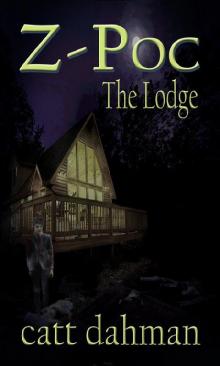 Z Poc: The Lodge
Z Poc: The Lodge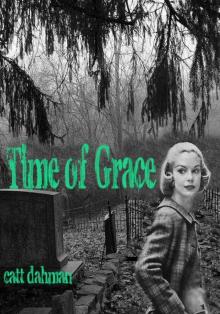 Time of Grace
Time of Grace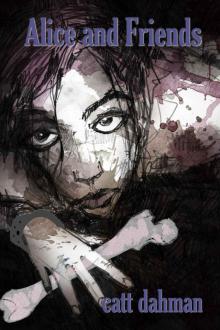 Alice and Friends
Alice and Friends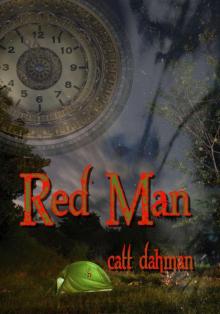 Red Man
Red Man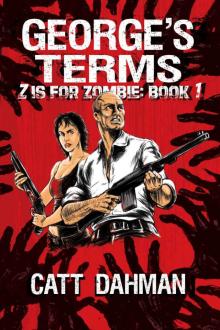 George's Terms: A Zombie Novel (Z Is For Zombie Book 1)
George's Terms: A Zombie Novel (Z Is For Zombie Book 1)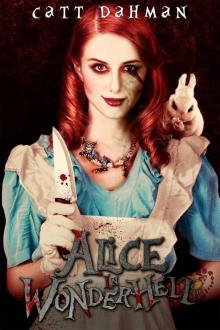 Alice In Wonderhell
Alice In Wonderhell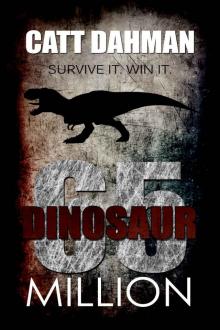 Dinosaur: 65 million
Dinosaur: 65 million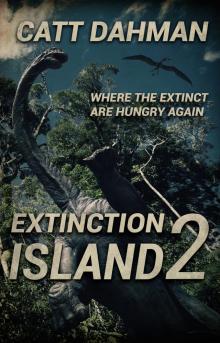 Extinction Island 2
Extinction Island 2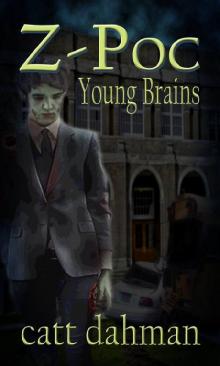 Z Poc: Young Brains
Z Poc: Young Brains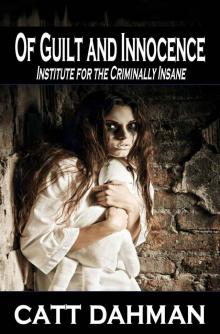 Of Guilt and Innocence: Institute at the Criminally Insane (Virgil McLendon Thrillers Book 3)
Of Guilt and Innocence: Institute at the Criminally Insane (Virgil McLendon Thrillers Book 3)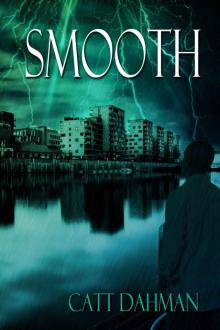 Smooth
Smooth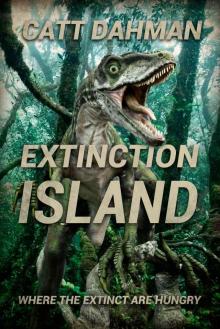 Extinction Island
Extinction Island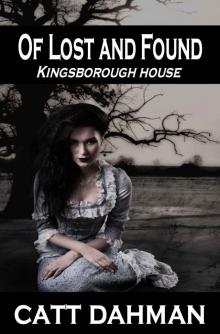 Of Lost and Found (the Kingsborough House): Kingsborough House (Virgil McLendon Thrillers Book 4)
Of Lost and Found (the Kingsborough House): Kingsborough House (Virgil McLendon Thrillers Book 4)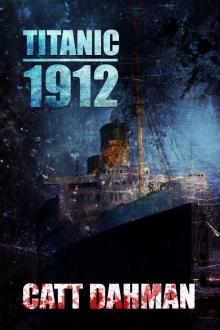 Titanic 1912: A Lovecraft Mythos Novel
Titanic 1912: A Lovecraft Mythos Novel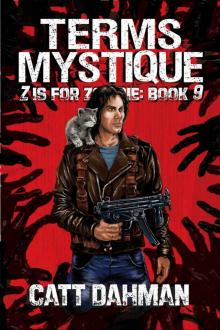 Terms Mystique: Z Is For Zombie 9
Terms Mystique: Z Is For Zombie 9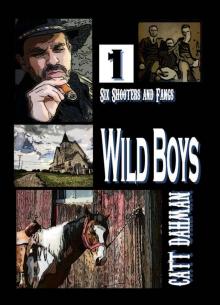 Wild Boys: Six Shooters and Fangs
Wild Boys: Six Shooters and Fangs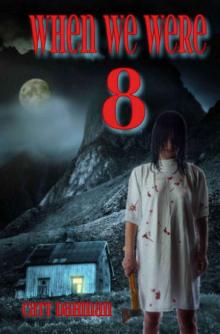 When We Were 8
When We Were 8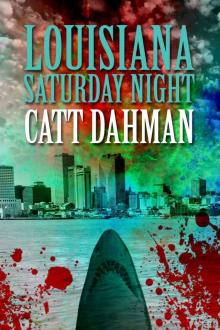 Louisiana Saturday Night
Louisiana Saturday Night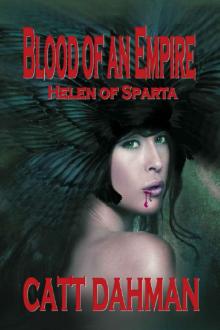 Blood of an Empire: Helen of Sparta
Blood of an Empire: Helen of Sparta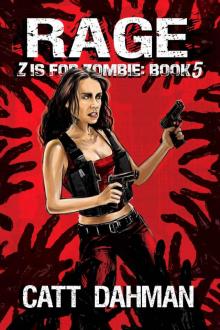 Rage: Z Is For Zombie Book 5
Rage: Z Is For Zombie Book 5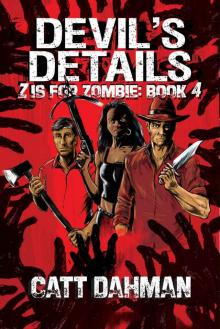 Devil's Details: Z Is For Zombie Book 4
Devil's Details: Z Is For Zombie Book 4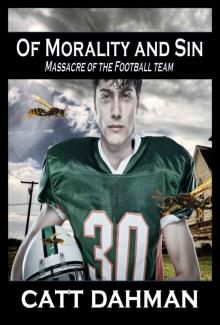 Of Morality and Sin: Massacre of the Football Team (Virgil McLendon Thrillers Book 7)
Of Morality and Sin: Massacre of the Football Team (Virgil McLendon Thrillers Book 7)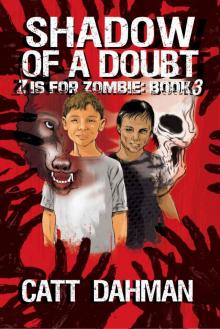 Shadow Of Doubt: Z Is For Zombie Book 3
Shadow Of Doubt: Z Is For Zombie Book 3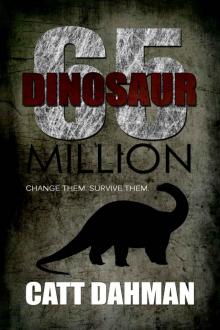 Dinosaur: 65 Million: Book 2 Change Them, Survive Them
Dinosaur: 65 Million: Book 2 Change Them, Survive Them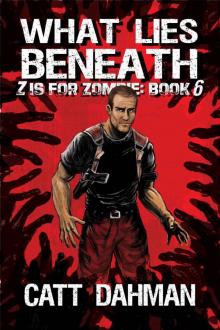 What Lies Beneath: Z is for Zombie Book 6
What Lies Beneath: Z is for Zombie Book 6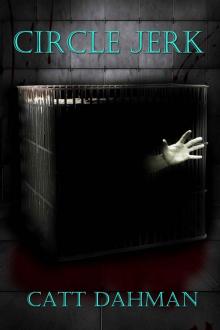 Circle Jerk
Circle Jerk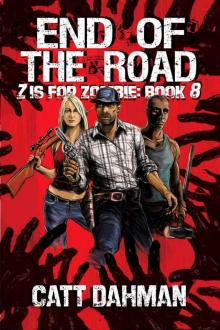 The End of the Road: Z is for Zombie Book 8 (Z is for Zombie: Book)
The End of the Road: Z is for Zombie Book 8 (Z is for Zombie: Book)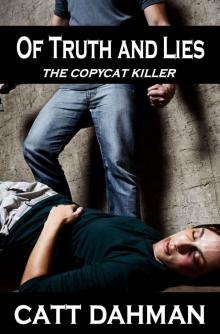 Of Truth and Lies: Hollingsworth Copycat Killer (Virgil McLendon Thrillers Book 5)
Of Truth and Lies: Hollingsworth Copycat Killer (Virgil McLendon Thrillers Book 5)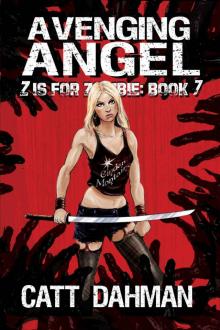 Avenging Angel: Z is for Zombie Book 7
Avenging Angel: Z is for Zombie Book 7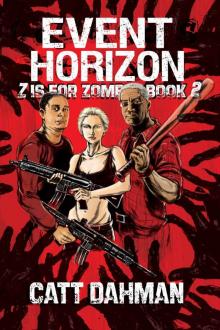 Event Horizon: Z Is For Zombie Book 2
Event Horizon: Z Is For Zombie Book 2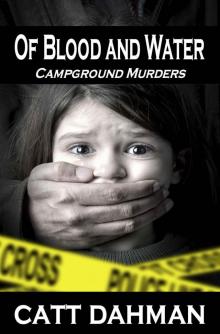 Of Blood and Water: Campground Murders (Virgil McLendon Thrillers Book 1)
Of Blood and Water: Campground Murders (Virgil McLendon Thrillers Book 1)